Abstract
Epidemiological studies of active smokers have shown that the duration of smoking has a much greater effect on lung cancer risk than the amount smoked. This observation suggests that passive smoking might be much more harmful than would be predicted from measures of the level of exposure alone, as it is often of very long duration frequently beginning in early childhood. In this paper we have investigated this using a multistage model with five stages. The model is shown to provide an excellent fit to data on the incidence of lung cancer among smokers, ex-smokers and non-smokers in a cohort of male British doctors. Contrary to our expectation the model predicted only a slight increase in relative risk with increasing duration of passive exposure. Allowing for exposures early in life does not therefore explain the discrepancy between the relative risk of about 1.5 calculated from epidemiological studies of lung cancer and the low levels of exposure indicated by cotinine measurements in those passively exposed.
Full text
PDF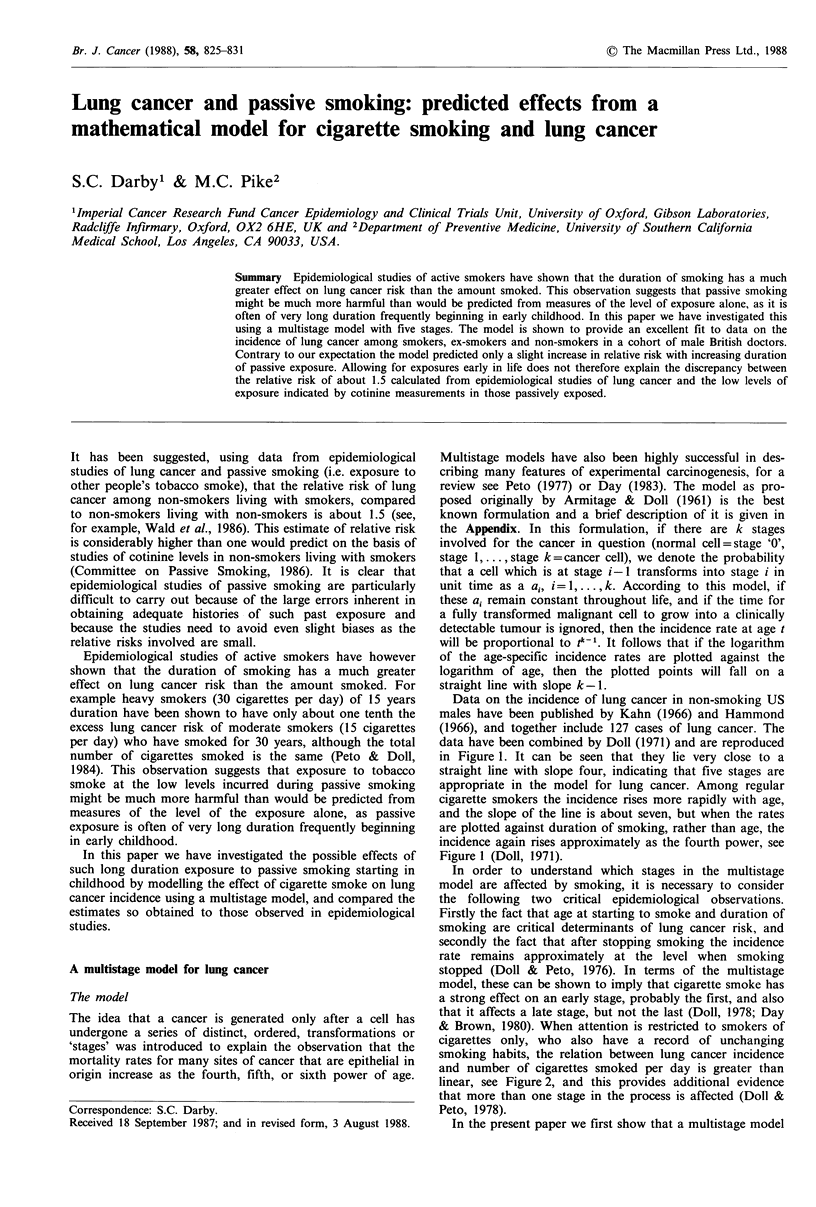
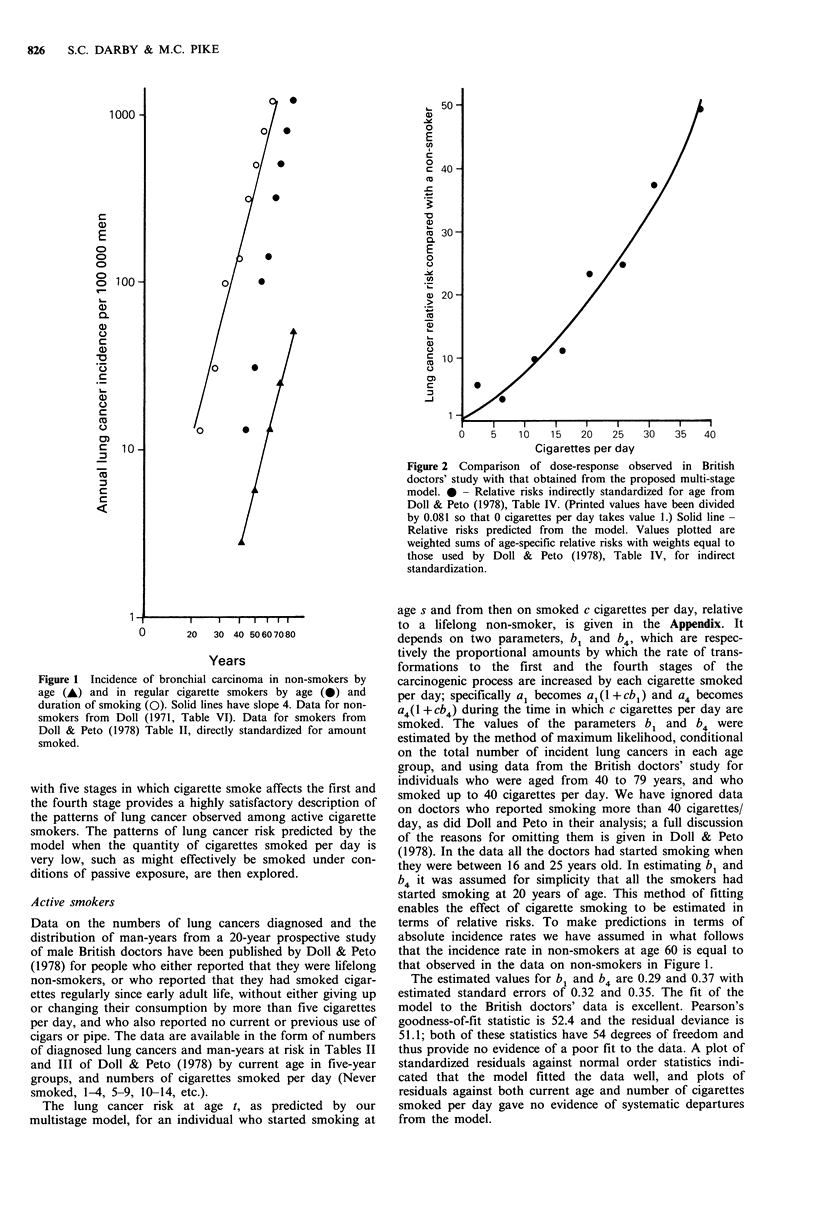
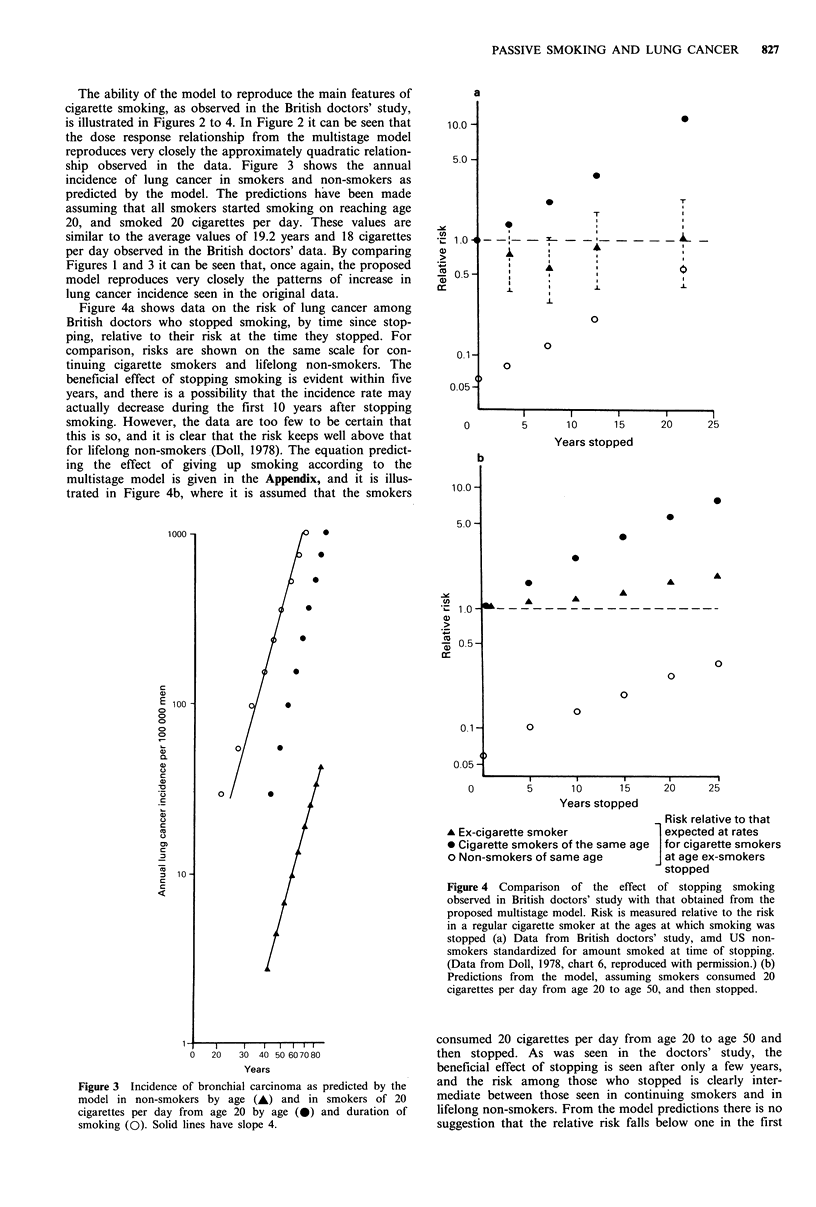
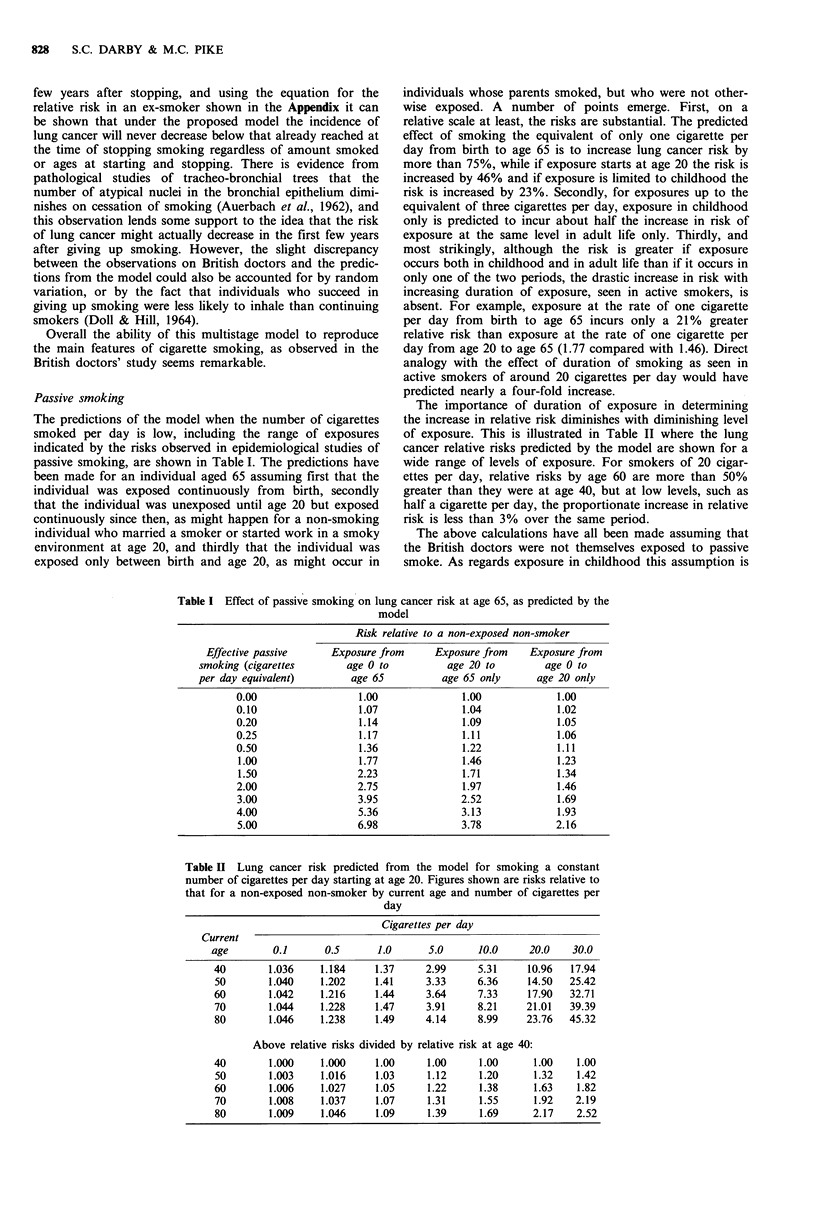
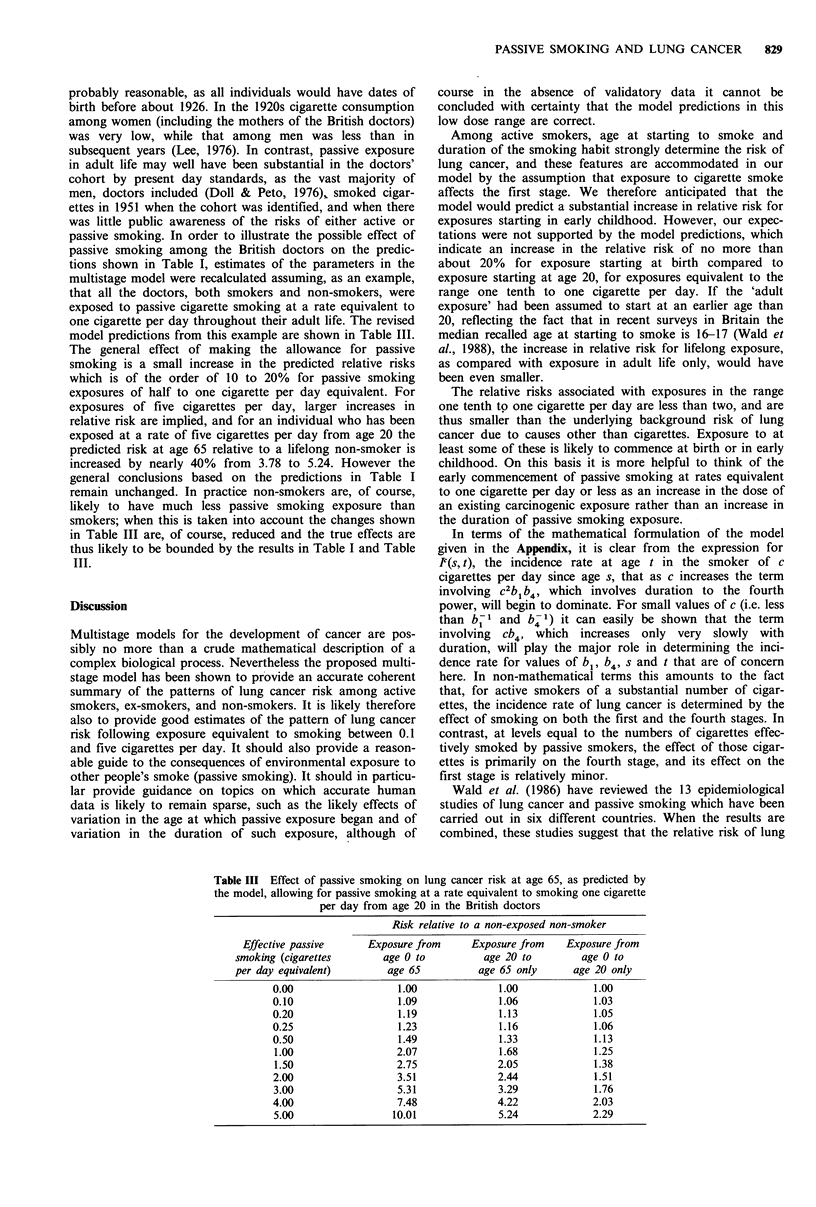
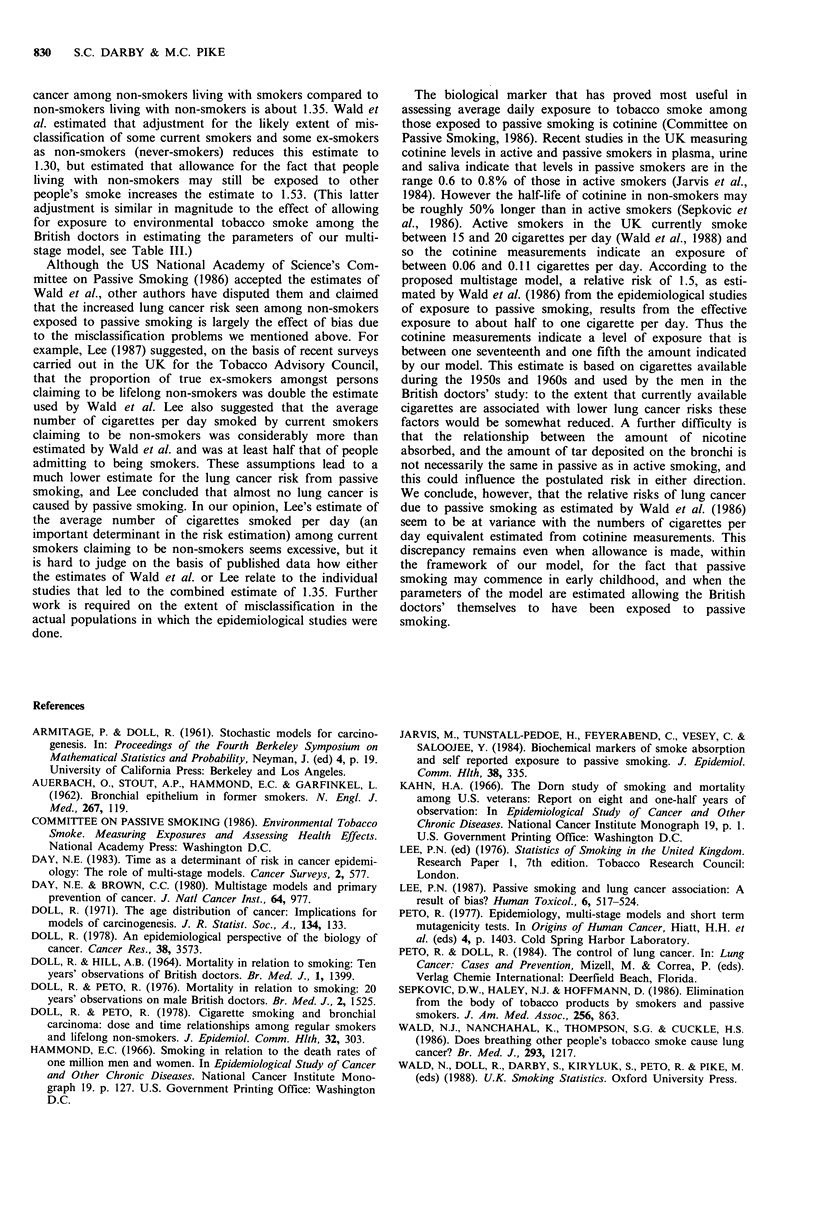
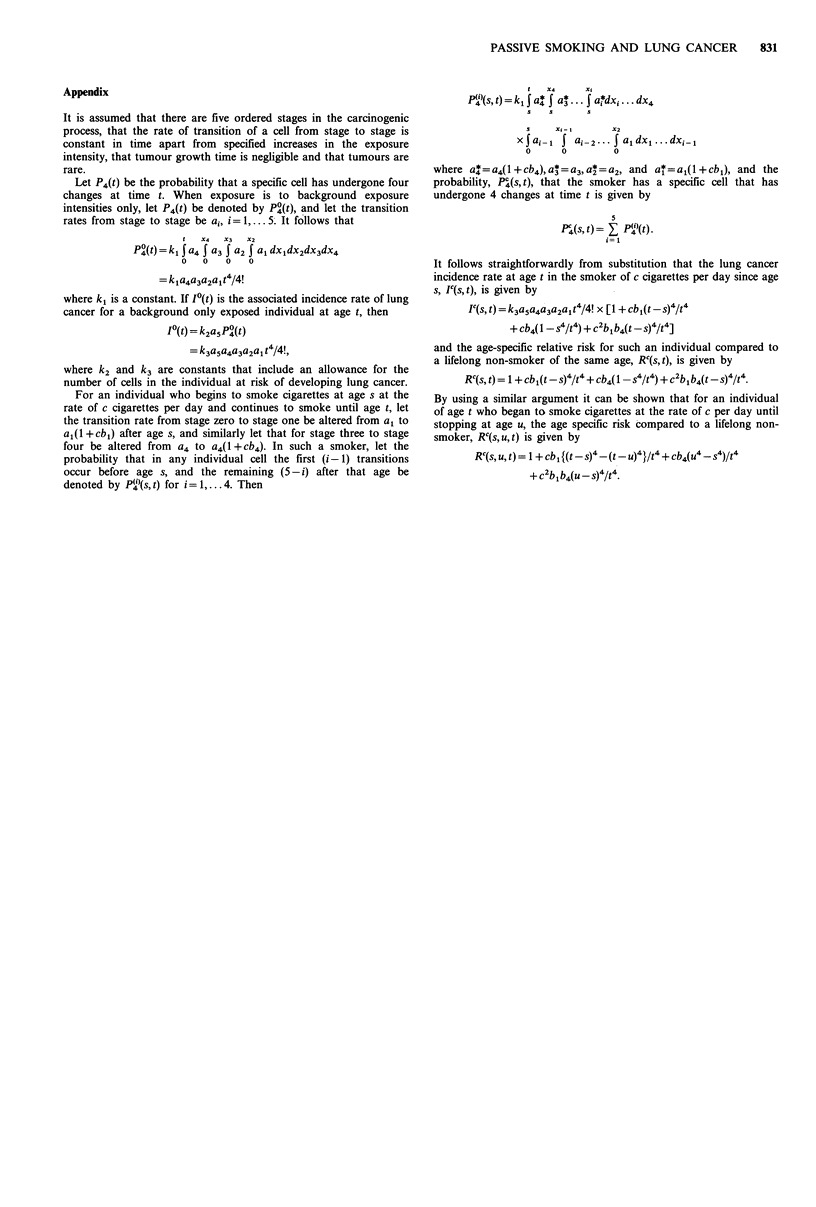
Selected References
These references are in PubMed. This may not be the complete list of references from this article.
- AUERBACH O., STOUT A. P., HAMMOND E. C., GARFINKEL L. Changes in bronchial epithelium in relation to sex, age, residence, smoking and pneumonia. N Engl J Med. 1962 Jul 19;267:111–119. doi: 10.1056/NEJM196207192670301. [DOI] [PubMed] [Google Scholar]
- DOLL R., HILL A. B. MORTALITY IN RELATION TO SMOKING: TEN YEARS' OBSERVATIONS OF BRITISH DOCTORS. Br Med J. 1964 May 30;1(5395):1399–1410. doi: 10.1136/bmj.1.5395.1399. [DOI] [PMC free article] [PubMed] [Google Scholar]
- Day N. E., Brown C. C. Multistage models and primary prevention of cancer. J Natl Cancer Inst. 1980 Apr;64(4):977–989. [PubMed] [Google Scholar]
- Doll R. An epidemiological perspective of the biology of cancer. Cancer Res. 1978 Nov;38(11 Pt 1):3573–3583. [PubMed] [Google Scholar]
- Doll R., Peto R. Cigarette smoking and bronchial carcinoma: dose and time relationships among regular smokers and lifelong non-smokers. J Epidemiol Community Health. 1978 Dec;32(4):303–313. doi: 10.1136/jech.32.4.303. [DOI] [PMC free article] [PubMed] [Google Scholar]
- Doll R., Peto R. Mortality in relation to smoking: 20 years' observations on male British doctors. Br Med J. 1976 Dec 25;2(6051):1525–1536. doi: 10.1136/bmj.2.6051.1525. [DOI] [PMC free article] [PubMed] [Google Scholar]
- Hammond E. C. Smoking in relation to the death rates of one million men and women. Natl Cancer Inst Monogr. 1966 Jan;19:127–204. [PubMed] [Google Scholar]
- Jarvis M., Tunstall-Pedoe H., Feyerabend C., Vesey C., Salloojee Y. Biochemical markers of smoke absorption and self reported exposure to passive smoking. J Epidemiol Community Health. 1984 Dec;38(4):335–339. doi: 10.1136/jech.38.4.335. [DOI] [PMC free article] [PubMed] [Google Scholar]
- Kahn H. A. The Dorn study of smoking and mortality among U.S. veterans: report on eight and one-half years of observation. Natl Cancer Inst Monogr. 1966 Jan;19:1–125. [PubMed] [Google Scholar]
- Sepkovic D. W., Haley N. J., Hoffmann D. Elimination from the body of tobacco products by smokers and passive smokers. JAMA. 1986 Aug 15;256(7):863–863. [PubMed] [Google Scholar]
- Wald N. J., Nanchahal K., Thompson S. G., Cuckle H. S. Does breathing other people's tobacco smoke cause lung cancer? Br Med J (Clin Res Ed) 1986 Nov 8;293(6556):1217–1222. doi: 10.1136/bmj.293.6556.1217. [DOI] [PMC free article] [PubMed] [Google Scholar]


